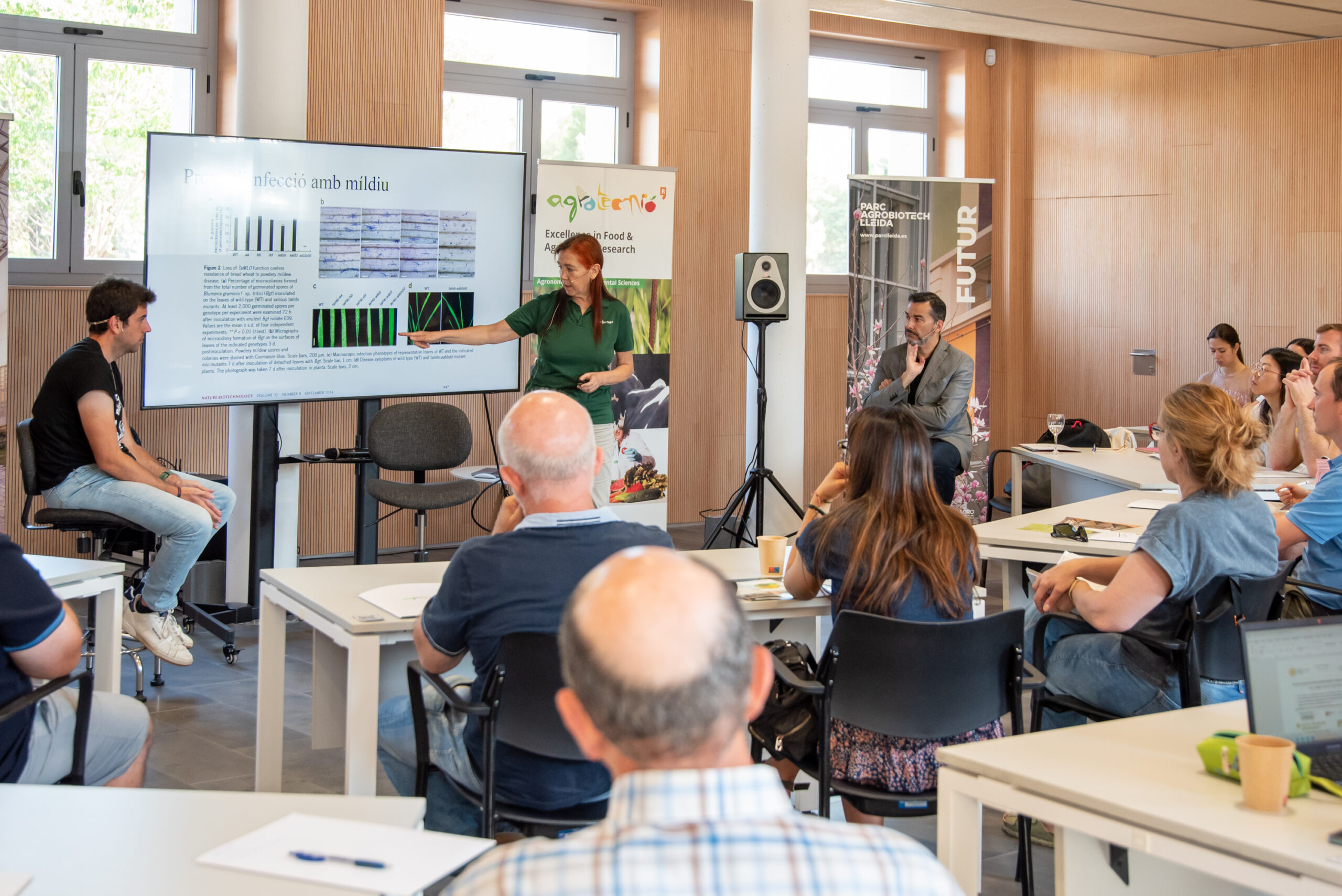Teresa Capell, professor at the University of Lleida and researcher at Agrotecnio, has spent decades researching the genetic improvement of rice. Together with Marc Fontquerna, agronomist and rice production advisor at the Agrupació de Defensa Vegetal de l’Arròs de Pals, they presented today at the Breakfast4inno of Agrotecnio and the Agrobiotech Lleida Park their joint work on the development of genetically edited “bomba” rice varieties that resist rice blast, a rice crop disease that causes losses of 30% and seriously endangers pump rice crops.
The third session of Breakfast4inno dealt with new genomic techniques applied to rice production. ‘The main problems of the crop are weeds, diseases such as pyricularia and pests,’ explained Fontquerna, who added that ‘rice production has become very complicated in our context. We cannot produce GMOs, but we import them. Without GMOs, feed prices in the European Union would rise by 500%“.
During her speech, Teresa Capell explained that ‘the European Union regulates the production process of the plant, while in the United States and Canada the product produced by the plant is regulated. Producing rice resistant to piricularia would be possible in Catalonia with political support. It is necessary that the administration, agriculture, science and the media join forces to move forward with this new technology’.
Magnaporthe oryzae, the fungus that causes rice blast, identifies certain genes in the plant. The Lleida-based research group deactivates these genes so that the fungus is unable to identify and infect plants. They are currently working on setting up experimental fields. The Applied Plant Biotechnology group of Agrotecnio and the UdL, led by Paul Christou and Teresa Capell, is one of the first in the world to work on rice biotechnology and gene editing.
The legislative context
In February 2024, the European Parliament adopted a favourable position on the European Commission’s legislative proposal on New Genomic Techniques (NGT). With 307 votes in favour, 263 against and 41 abstentions, the Parliament adopted its position for negotiations with Member States, opening the door to the development of improved plant varieties that resist climate and pests and offer superior yields, even without the need for fertilisers or pesticides.
More information:

